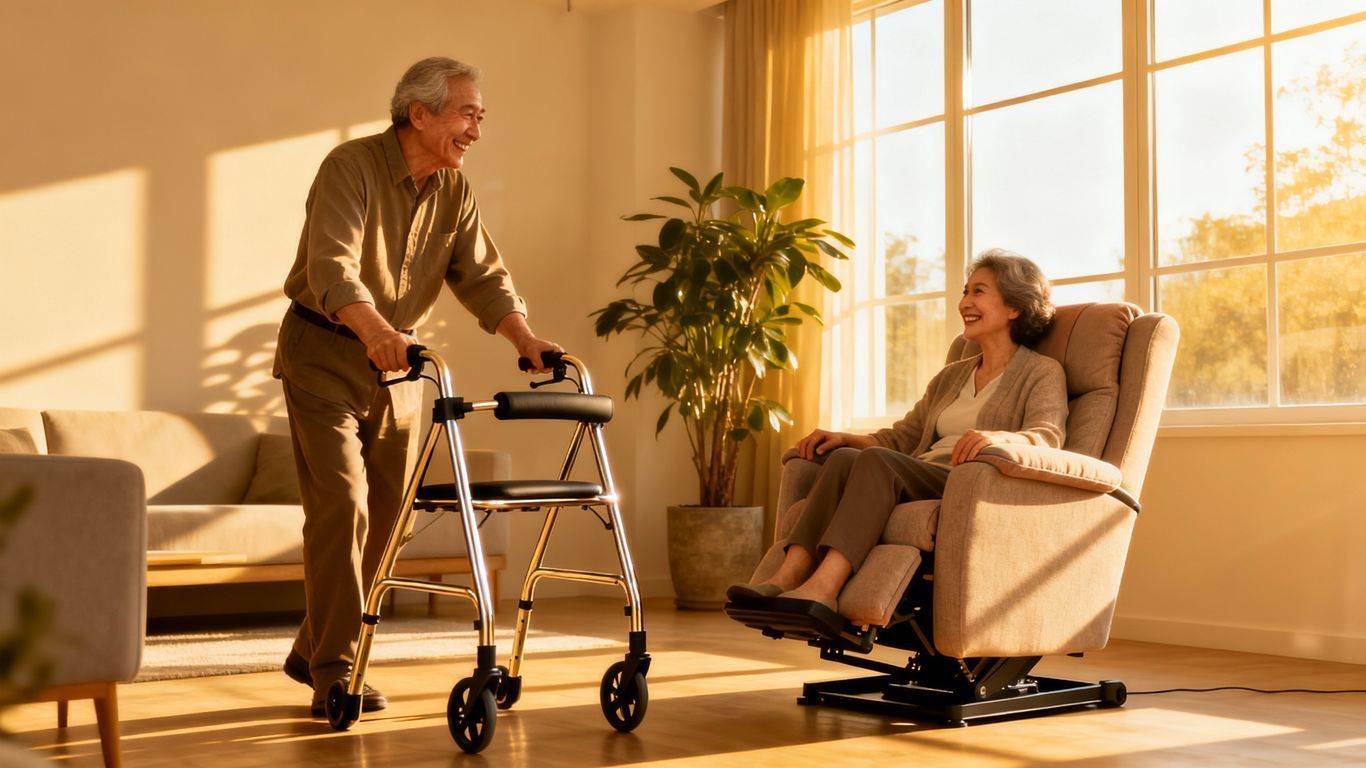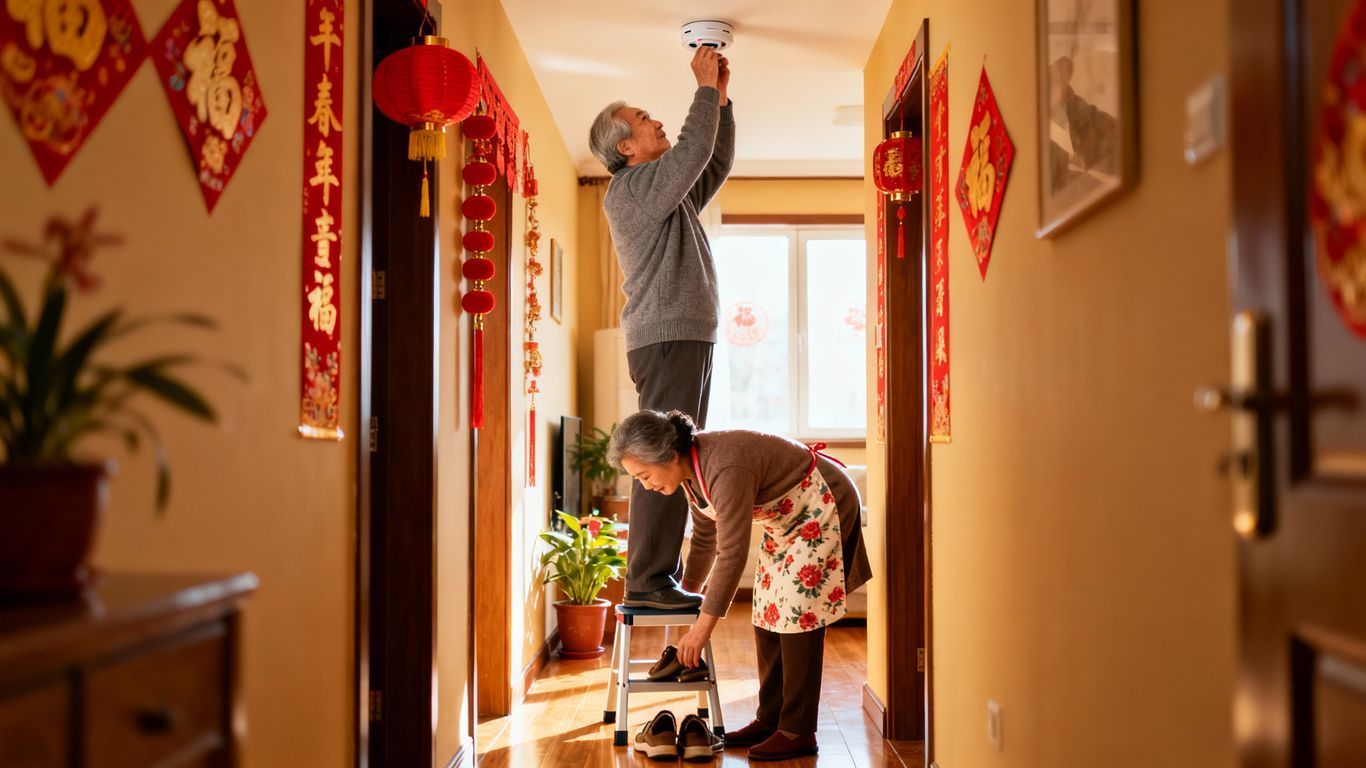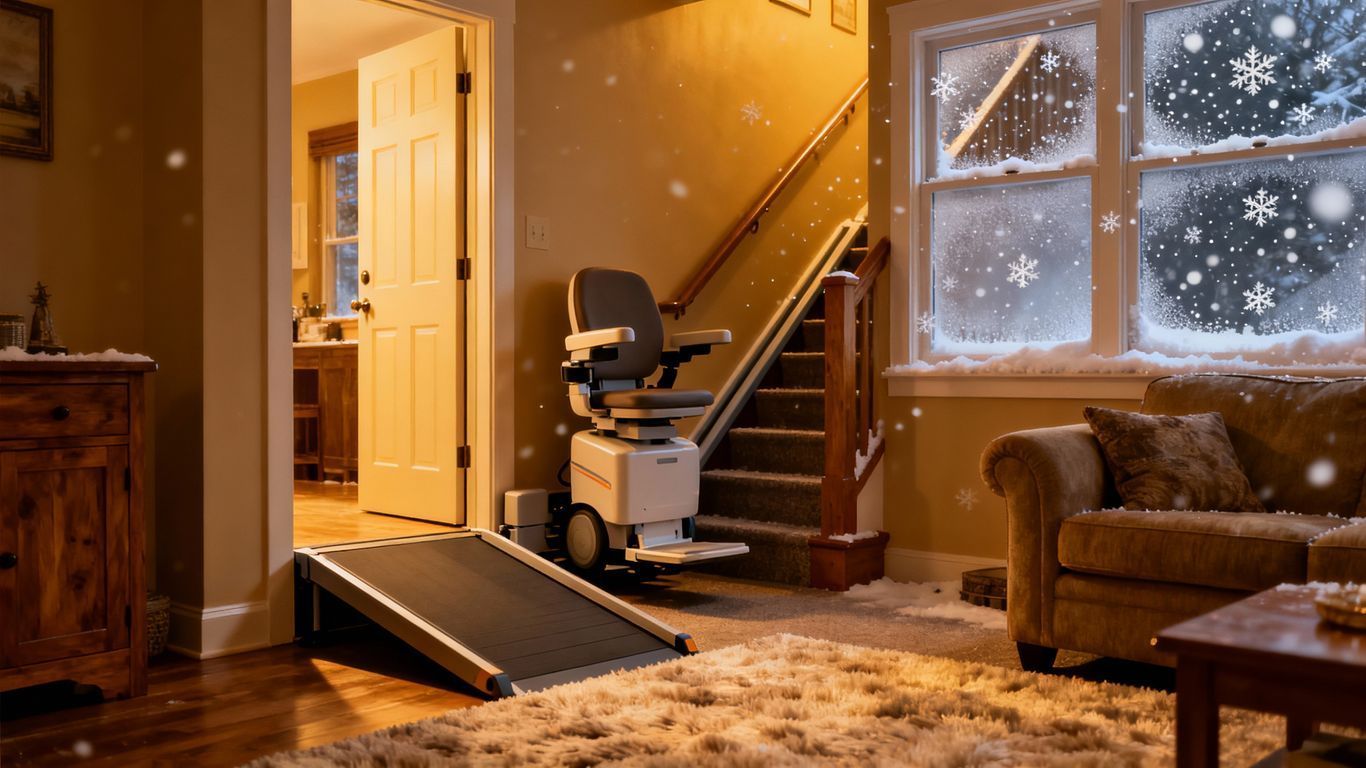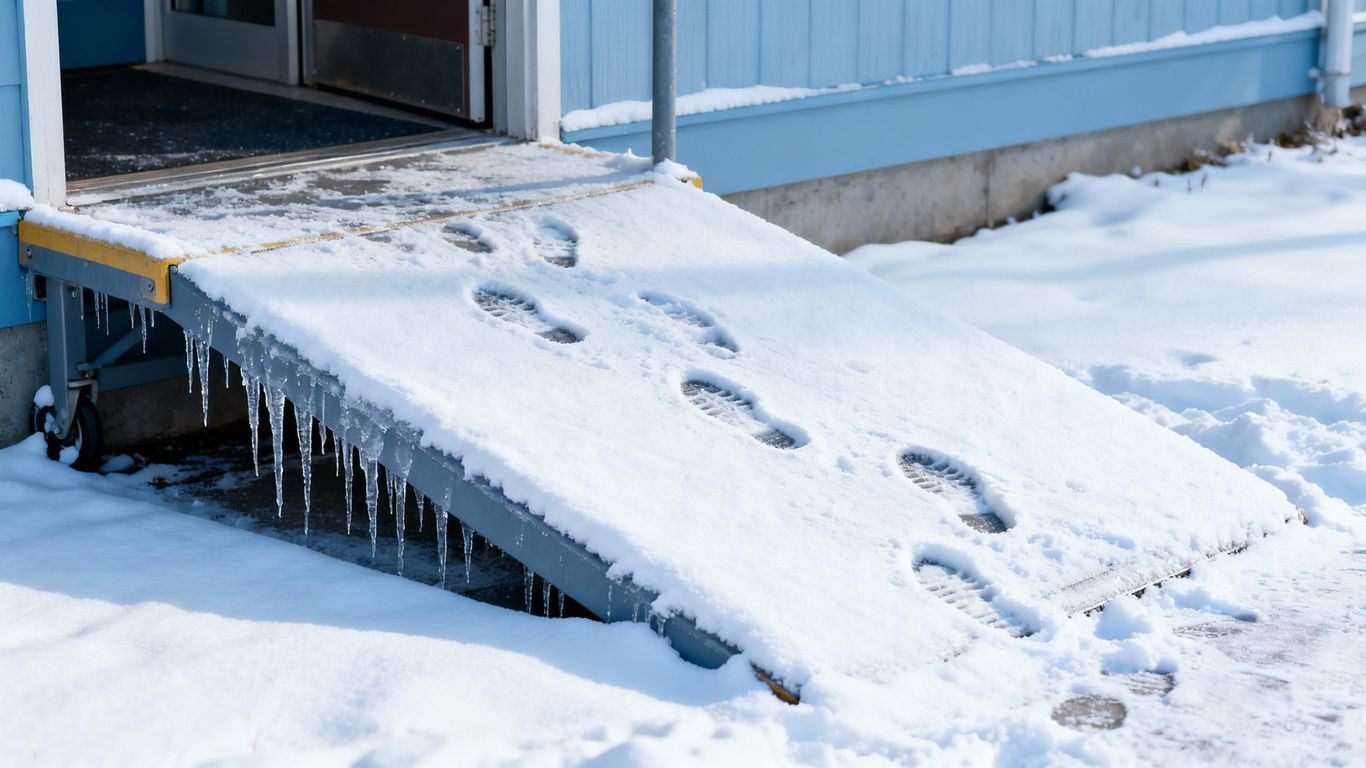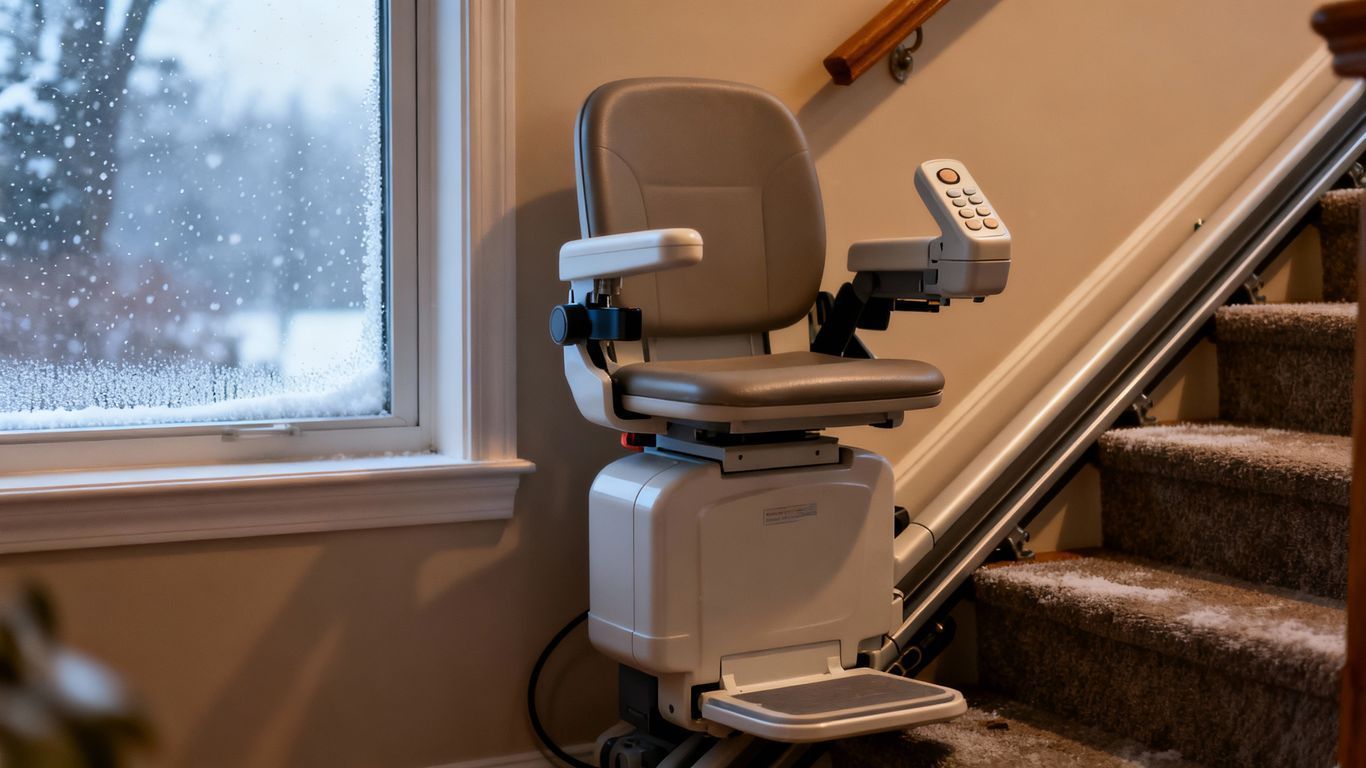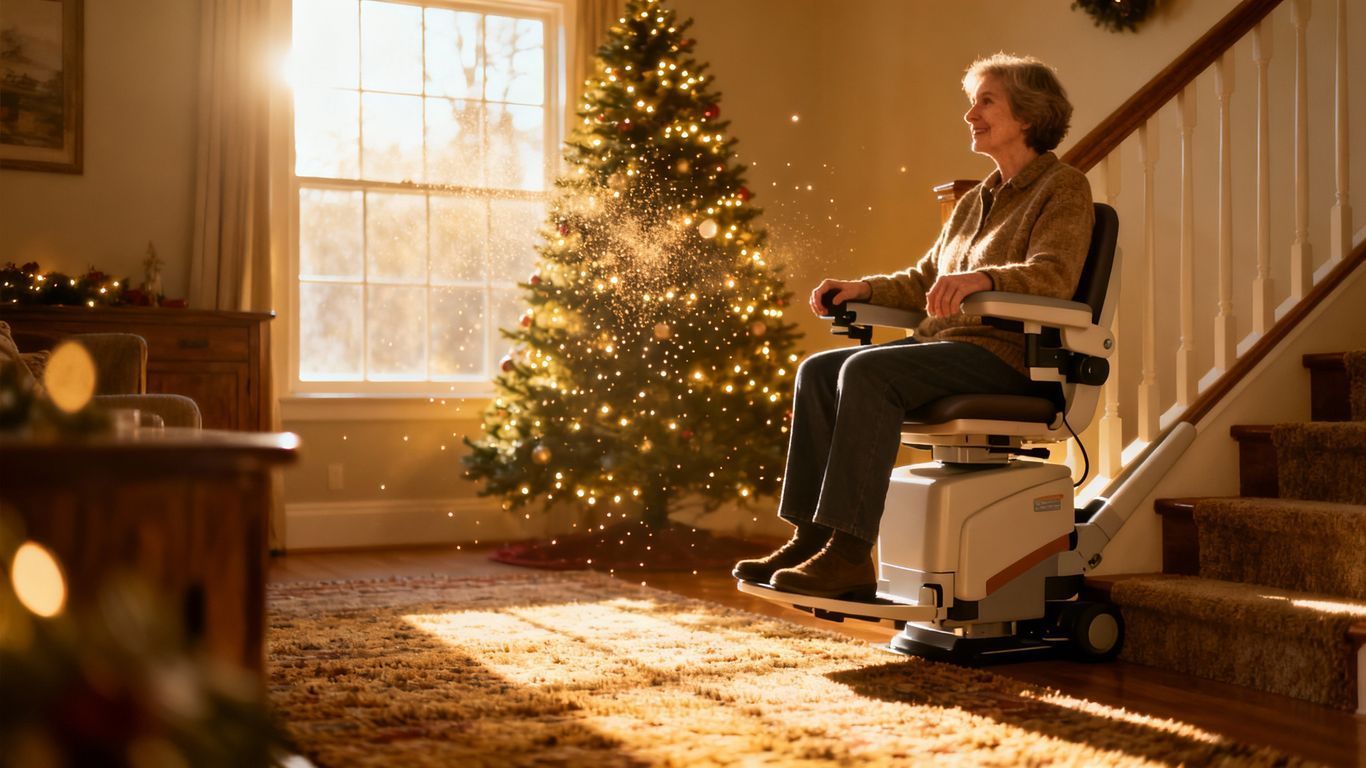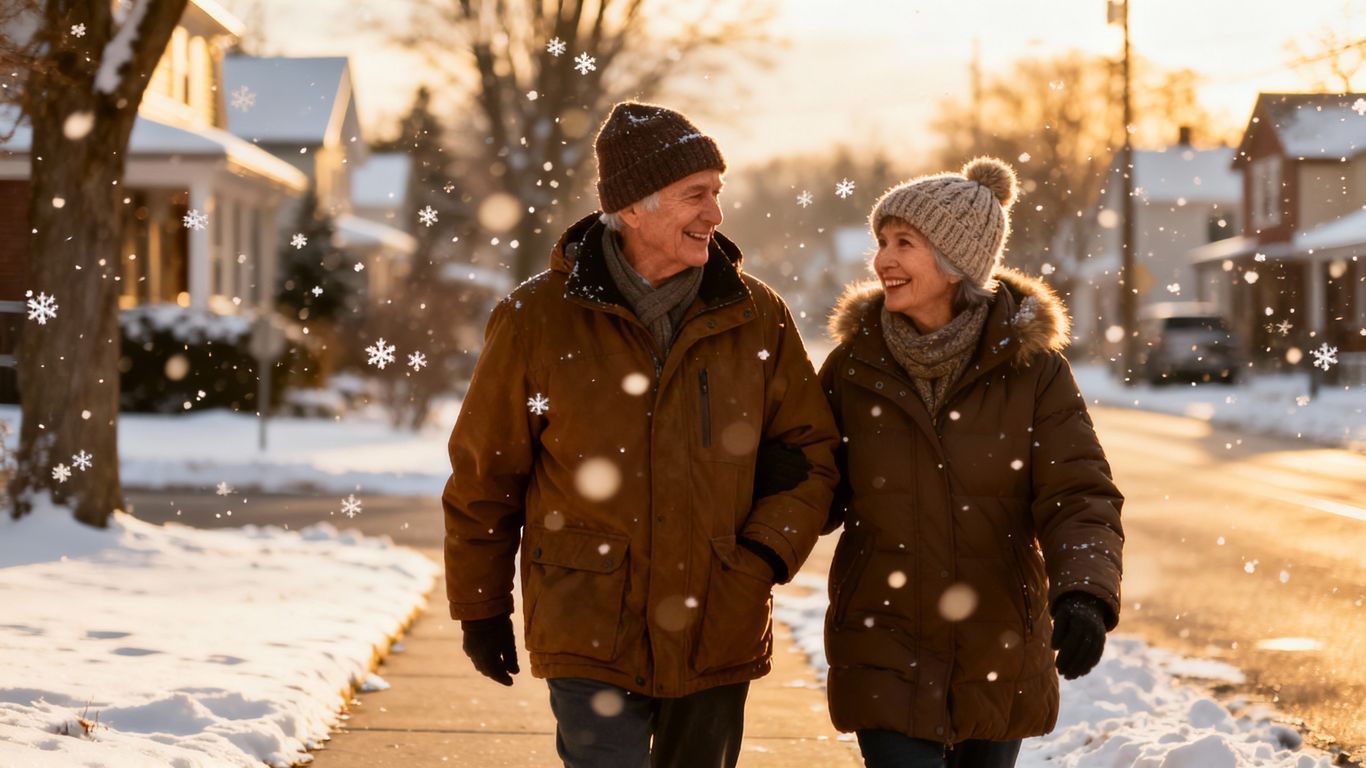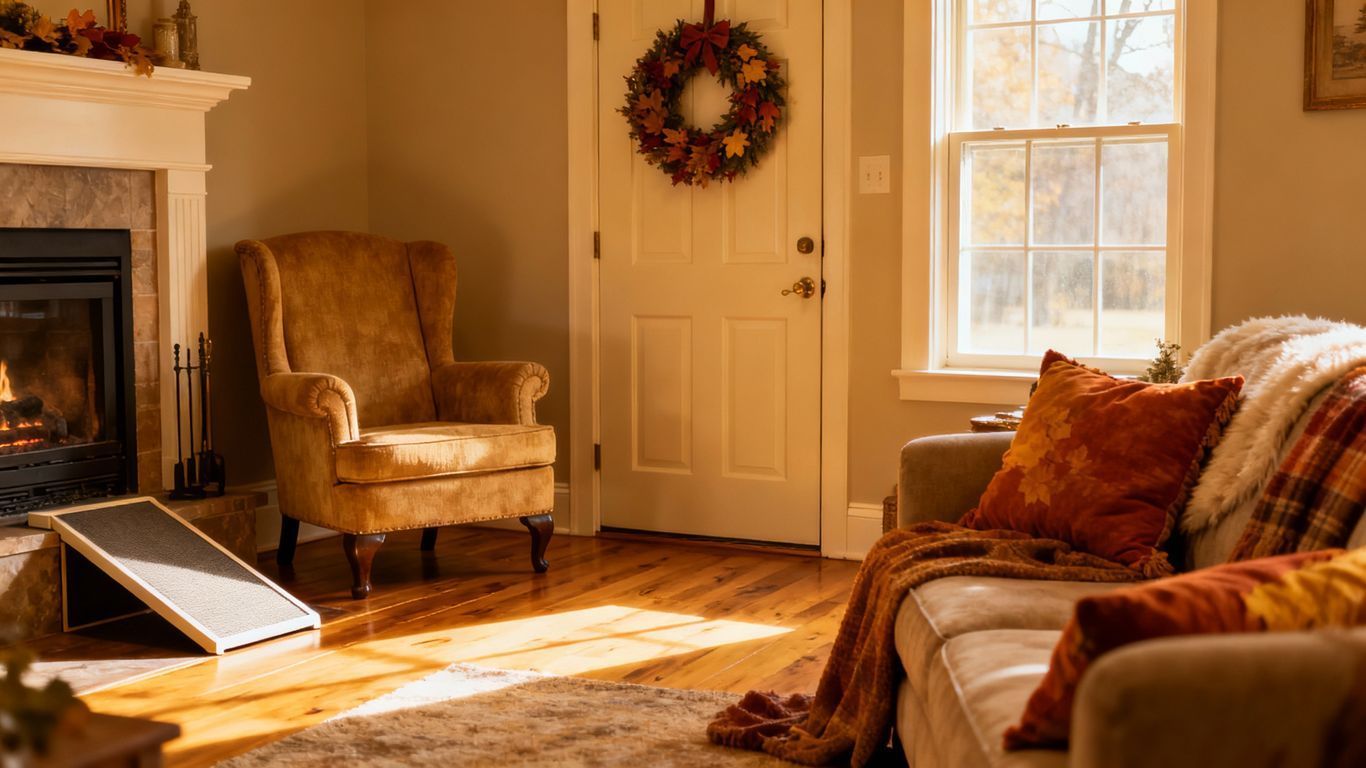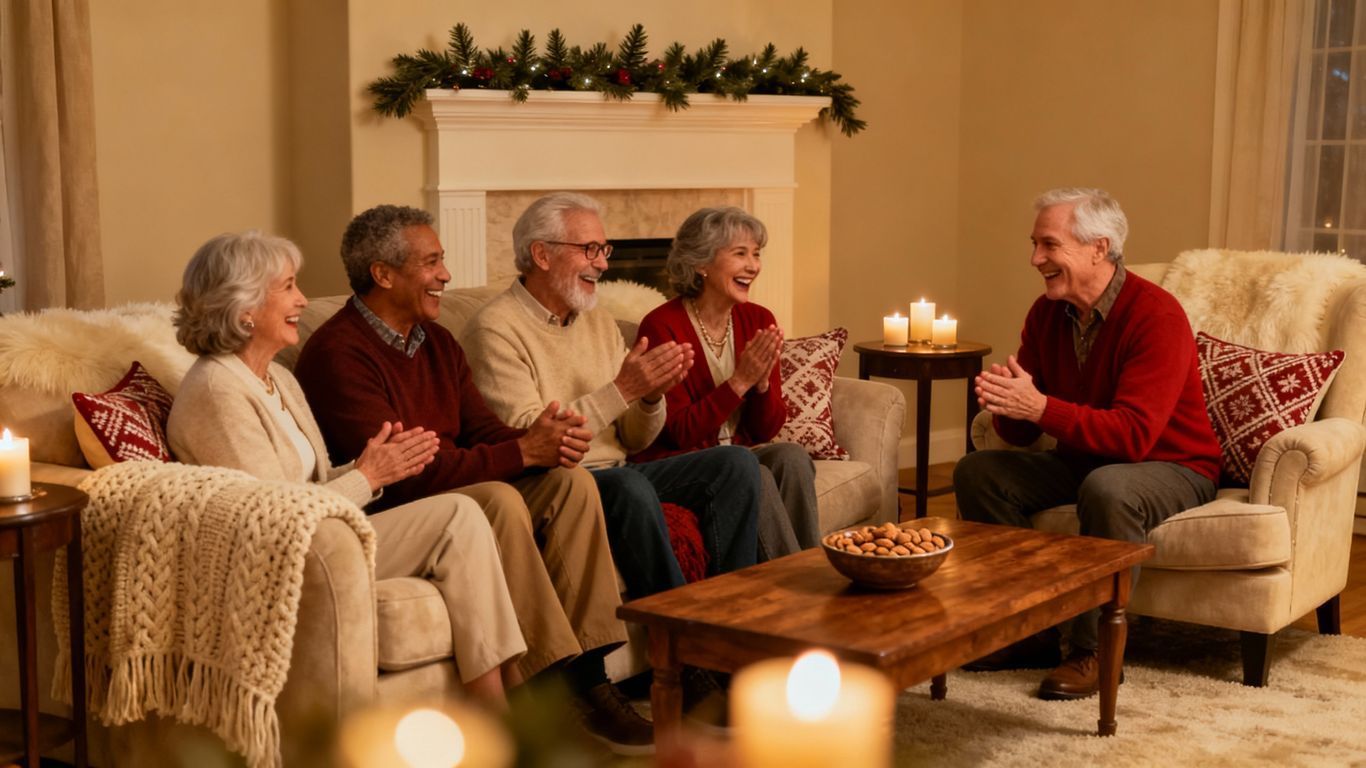October Home Safety Tips for Seniors in Dalton, LaFayette, Ringgold, Chickamauga & Chattanooga

As the leaves turn gold and the air gets a little crisper here in North Georgia, it's a good time to think about keeping our homes safe, especially for seniors. This season brings changes, and with them, new considerations for home safety. We've put together some practical home safety tips for seniors in North Georgia to help make your home a secure and comfortable place all year round. Let's look at some simple steps that can make a big difference.
Key Takeaways
- Keep indoor pathways clear of clutter and secure outdoor steps to prevent slips. Good lighting inside and out is also key.
- Regularly test smoke and carbon monoxide detectors, practice kitchen fire prevention, and use heating sources safely.
- Have a household emergency plan and keep a list of important contact numbers handy. Make sure you have necessary supplies.
- Consider installing grab bars in bathrooms and looking into non-slip flooring. Stair lifts or ramps can also help with mobility.
- Organize medications, use reminders for taking them, and store them safely to avoid mix-ups or accidents.
Preventing Slips and Falls
As the weather cools and leaves start to fall, the risk of slips and falls can increase, especially for seniors. Taking a few simple steps around the house can make a big difference in staying safe and independent. A safe home is a happy home, and preventing falls is a top priority.
Clear Pathways Indoors
It might seem obvious, but keeping walkways clear inside your home is super important. Think about where you walk most often – hallways, living room, kitchen, bathroom. Are there things that could trip you up?
- Remove clutter: Put away items like newspapers, magazines, shoes, and pet toys that tend to gather in walkways.
- Secure rugs and mats: Loose rugs are a major hazard. Use non-slip backing or double-sided tape to keep them in place. If a rug is too worn or curled, it might be time to get rid of it.
- Manage cords and wires: Electrical cords, phone chargers, and other wires can create tripping hazards. Use cord covers or tape them down securely to the floor or baseboards.
Keeping your indoor spaces tidy isn't just about looks; it's a practical way to prevent accidents. A clear path means a safer journey from room to room.
Secure Outdoor Steps and Walkways
Outside your home, the risks can be even greater, especially with changing weather. Wet leaves, frost, or even just uneven surfaces can be tricky.
- Inspect steps and railings: Make sure outdoor steps are in good repair. Check that railings are sturdy and securely attached. If you have a porch or deck, ensure the surface is not rotting or has loose boards.
- Clear debris regularly: Keep walkways and driveways free of leaves, snow, ice, and other debris. Consider using salt or sand on icy patches.
- Improve visibility: Make sure outdoor steps and walkways are well-lit, especially during the evening hours. Reflective tape can also be added to the edges of steps for better visibility.
Proper Lighting Throughout The Home
Good lighting is your best friend when it comes to preventing falls. Dimly lit areas can hide hazards, making it hard to see where you're going.
- Brighten dark areas: Add extra lamps or overhead lighting in hallways, stairwells, and any rooms that tend to be dark.
- Use nightlights: Motion-activated nightlights are great for bathrooms, bedrooms, and hallways, providing light when you get up in the middle of the night without having to search for a switch.
- Switch to brighter bulbs: Consider using higher wattage bulbs (within the fixture's limits) or switching to LED bulbs, which often provide brighter light and use less energy.
Making these adjustments can significantly reduce the risk of slips and falls, allowing seniors to maintain their independence and peace of mind in their own homes.
Fire Safety Measures
As the weather cools and we spend more time indoors, fire safety becomes even more important. It's easy to get caught up in autumn activities, but taking a few minutes to check your home's fire defenses can make a big difference. Making sure your smoke and carbon monoxide detectors are working properly is the first step.
Test Smoke and Carbon Monoxide Detectors
These devices are your first line of defense, alerting you to danger before it becomes overwhelming. It's recommended to test them monthly and replace the batteries at least once a year, or whenever the low-battery chirp starts. If your detectors are older than 10 years, it's time to replace the entire unit. Don't forget to test detectors on every level of your home, including the basement and inside and outside sleeping areas. A simple push of the test button is all it takes.
Kitchen Fire Prevention
The kitchen is a common place for fires to start, especially with more cooking happening during the fall holidays. Always stay in the kitchen when you're frying, grilling, or broiling food. If you need to leave the room, even for a moment, turn off the stove. Keep anything that can catch fire – like oven mitts, wooden utensils, food packaging, towels, and curtains – away from the stovetop. Clean cooking surfaces regularly to prevent grease buildup.
Safe Heating Practices
With cooler temperatures, many of us will be using heaters more often. Space heaters should be placed at least three feet away from anything that can burn, including furniture, curtains, and bedding. Always turn them off when you leave the room or go to sleep. Make sure your fireplace is cleaned and inspected annually by a professional. If you use a wood-burning stove, follow the manufacturer's instructions for safe operation and maintenance.
Regular maintenance and awareness are key to preventing fires. Simple checks can save lives and property. Consider creating a fire escape plan with your household members and practicing it so everyone knows what to do in an emergency. You can find more information on preparing for fire emergencies at fire escape plan.
Here are a few more tips to keep in mind:
- Keep flammable liquids stored safely and away from heat sources.
- Have a fire extinguisher readily available and know how to use it.
- Check electrical cords for damage and avoid overloading outlets.
Emergency Preparedness
When it comes to staying safe, especially as we get older, having a solid plan for emergencies is a really good idea. You never know when something unexpected might happen, like a power outage or a bad storm, and being ready can make a big difference. It’s about peace of mind and making sure you can handle things if they get tough.
Create A Household Emergency Plan
Putting together a plan doesn't have to be complicated. Think about what might happen in your area. Does your neighborhood often lose power? Are there specific weather events you should prepare for? Once you have an idea, you can start making steps.
- Identify potential risks: What kind of emergencies are most likely where you live? Think about weather, power outages, or even personal health emergencies.
- Decide on meeting places: If you have to leave your home, where will you go? Have a place nearby and another one further away if you need to evacuate the area.
- Plan communication: How will you get in touch with family or friends if your phone doesn't work? Maybe a neighbor can check in, or you can agree on a time to call a specific person.
Having a plan means you've thought through the 'what ifs' ahead of time. This reduces panic and helps everyone know what to do, even if things are chaotic.
Emergency Contact Information
It's super important to have a list of important phone numbers handy. Don't rely just on your phone's contact list, because if your phone dies or you can't access it, you're stuck. Keep this list somewhere visible and easy to grab.
- Family members and close friends
- Doctors and pharmacy
- Local police and fire departments (non-emergency numbers too)
- Utility companies
- Insurance providers
Stock Up On Essential Supplies
Think of this as a go-bag or a home kit. You'll want enough supplies to get by for a few days if you can't get to the store or if services are interrupted. It's not just about food and water, though those are key.
- Water: At least one gallon per person per day for several days.
- Food: Non-perishable items like canned goods, energy bars, and dried fruit. Don't forget a manual can opener!
- First-aid kit: Make sure it's well-stocked with bandages, antiseptic wipes, pain relievers, and any personal medications.
- Light sources: Flashlights with extra batteries, or even battery-powered lanterns.
- Communication: A battery-powered or hand-crank radio to get updates.
- Sanitation: Wet wipes, garbage bags, and plastic ties for personal sanitation.
Home Accessibility Enhancements
Making your home safer and easier to get around in is a big deal, especially as we get older. Little changes can make a huge difference in daily life, helping you stay independent and comfortable right where you are. These modifications aren't just about safety; they're about maintaining your freedom and quality of life.
Install Grab Bars In Bathrooms
Bathrooms are common spots for slips. Adding grab bars in key areas can provide much-needed support. Think about installing them:
- Near the toilet for assistance when sitting down or standing up.
- Inside and outside the shower or bathtub to help with getting in and out safely.
- Along walls where you might need extra balance, like between the sink and the shower.
These bars are sturdy and give you something reliable to hold onto, reducing the risk of a fall significantly. It's a simple fix that offers a lot of security.
Consider Stair Lifts Or Ramps
If you have multiple levels in your home or steps leading up to your entrance, these can become real obstacles. Stair lifts are mechanical chairs that travel up and down your staircase, making it easy to move between floors without the physical strain. For outdoor steps, ramps can be installed. They provide a gradual incline, making it possible to use a wheelchair or walker without having to climb stairs at all. These solutions are great for keeping you mobile within your own home and property.
Non-Slip Flooring Solutions
The type of flooring you have matters a lot. Slippery surfaces, especially when wet, are a major hazard. Consider these options:
- Textured Tiles: In bathrooms or kitchens, opt for tiles with a bit of grip. They look good and are much safer than smooth, glossy ones.
- Non-Slip Mats: Place these securely in areas prone to moisture, like in front of the sink, by the bathtub, or at the entryway.
- Carpet or Rugs: While carpets can add warmth, make sure they are low-pile and have a non-skid backing. Loose rugs are a tripping hazard, so secure them well or avoid them altogether.
Taking the time to assess your home for potential hazards and making these accessibility upgrades can prevent accidents and allow you to live more confidently. It's about creating a living space that supports you as your needs change.
These adjustments are practical steps that can make a big difference in your day-to-day comfort and safety.
Medication Management
Keeping track of medications can get complicated, especially when you're juggling multiple prescriptions. It's easy to miss a dose or accidentally take too much if things aren't organized. Proper medication management is key to staying healthy and safe.
Organize Prescriptions
Start by gathering all your medications in one place. This includes prescriptions, over-the-counter drugs, vitamins, and supplements. A simple pill organizer can make a big difference. Look for ones with compartments for each day of the week, and even different times of the day if needed. This visual aid helps you see what you've taken and what's next.
Set Up Medication Reminders
Life gets busy, and it's easy to forget when to take your pills. Setting reminders can be a lifesaver. You can use your phone's alarm, a dedicated medication reminder app, or even a simple kitchen timer. Some people find it helpful to link medication times to daily routines, like taking pills right after brushing their teeth or before their morning coffee. If you're looking for ways to make your home more supportive, consider exploring home modifications that can help with daily tasks, including medication routines home accessibility solutions.
Safe Storage Of Medications
Storing your medications correctly is just as important as remembering to take them. Keep all medicines in their original containers with the labels intact. This helps you identify the drug and its dosage. Store them in a cool, dry place, away from direct sunlight and out of reach of children and pets. Some medications require refrigeration, so be sure to check the label for specific storage instructions.
Keeping your medications organized and stored properly reduces the risk of errors and ensures you're getting the full benefit of your treatment plan. It's a simple step that contributes significantly to overall well-being.
It's also a good idea to have a conversation with your doctor or pharmacist about your medication schedule. They can offer personalized advice and help you create a system that works best for you. Don't hesitate to ask questions about potential side effects or interactions between different drugs.
Maintaining A Safe Kitchen
The kitchen is often the heart of the home, but it can also be a place where accidents happen, especially for seniors. Taking a few simple steps can make a big difference in keeping this busy space safe.
Prevent Burns and Scalds
It's easy to get distracted while cooking, and that's when burns can happen. Always be mindful when working with hot stoves, ovens, or liquids. Turning pot handles inward, away from the edge of the stove, is a good habit to get into. When serving hot food or drinks, make sure the person receiving them is ready and aware. For those with reduced sensation, testing the temperature of bathwater or food before consuming is a smart move.
Safe Use of Appliances
Modern kitchens have lots of gadgets, and it's important to use them correctly. Always read the instructions for any appliance before using it for the first time. Make sure cords are in good condition and not frayed. Unplug appliances when you're done with them, especially toasters and blenders. Keep them away from the sink and water sources. If you're looking for ways to make your home safer, consider looking into accessibility solutions that can help with daily tasks.
Keep Cooking Areas Clear
A cluttered kitchen is a hazard waiting to happen. Keeping countertops and floors free of clutter is key to preventing slips and falls. This means putting away ingredients and utensils when you're finished, and wiping up spills immediately. Loose rugs or mats near the stove can also be a tripping risk, so secure them or consider removing them altogether. Keeping pathways clear indoors is a good general rule for safety.
A clean and organized kitchen reduces the risk of accidents. It's not just about tidiness; it's about creating a functional space where movement is easy and hazards are minimized. Think about where you store items and how often you use them. Making small changes can lead to a much safer environment for everyone.
Keeping your kitchen safe is super important. Simple steps can prevent accidents and keep everyone healthy. Want to learn more about making your kitchen a safer place? Visit our website for helpful tips and guides!
Stay Safe and Cozy This Fall
So, as the leaves turn and the air gets a bit crisper here in Dalton, LaFayette, Ringgold, Chickamauga, and Chattanooga, remember to keep these safety tips in mind. It’s all about making small changes that can make a big difference in staying safe and comfortable at home. Think about checking those smoke detectors, making sure walkways are clear, and maybe even looking into ways to make your home a little easier to get around in. If you're thinking about home modifications or need help with mobility, places like North Georgia Mobility have been helping folks for years and really know their stuff. Taking a little time now can help you enjoy the rest of the fall season without any worries. Stay well and enjoy the season!
Frequently Asked Questions
What's the most common way seniors get hurt at home in the fall?
Slips and falls are a big worry for seniors. Often, it's because walkways inside and outside the house aren't clear, or the steps are slippery. Poor lighting makes it hard to see tripping hazards, too.
How often should I check my smoke alarms?
You should test your smoke alarms and carbon monoxide detectors at least once a month. It's also a good idea to replace the batteries every year, even if they seem to be working fine.
What's the best way to prepare for an emergency like a power outage?
Having a plan is key! Make sure everyone in the house knows what to do. Keep a list of important phone numbers handy, and have a kit with things like water, non-perishable food, flashlights, and extra batteries.
Are there easy ways to make my bathroom safer?
Yes! Adding grab bars in the shower or next to the toilet can make a huge difference. Also, using non-slip mats or special flooring can prevent nasty falls.
What should I do if I take multiple medications?
It can get confusing! Try using a pill organizer to sort your daily doses. Setting reminders, like alarms on your phone or a special clock, can also help you remember to take them on time. Always store them safely away from kids or pets.
How can I prevent kitchen accidents?
Be careful around the stove to avoid burns. Make sure appliances are used correctly and that the area around the stove and oven is kept clear of anything that could catch fire, like towels or paper.

